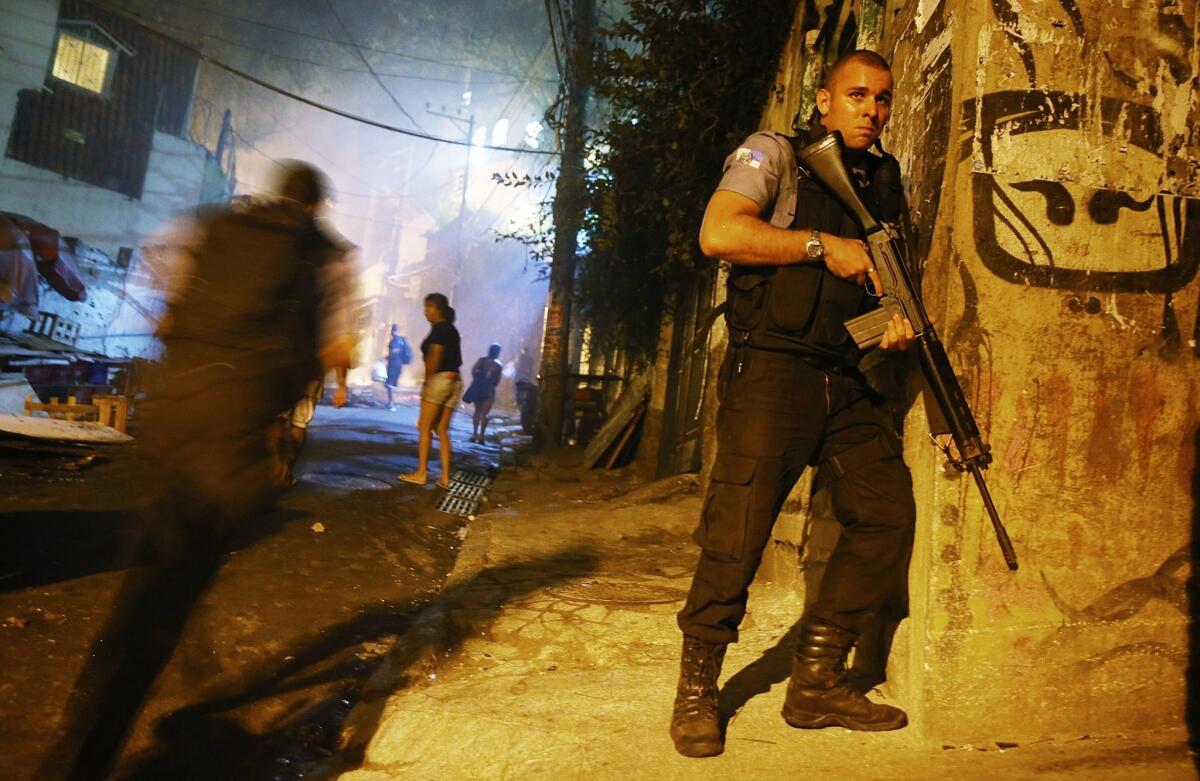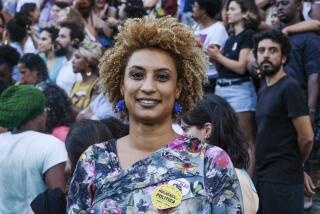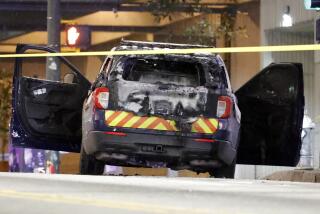Dancer’s death in Rio triggers clashes between police, residents

- Share via
SAO PAULO, Brazil -- The mysterious death of a young dancer during a police operation led to violent clashes between slum residents and police in Rio de Janeiro on Tuesday night that left one man dead.
Residents set fires and put up barricades, shutting down parts of the Copacabana and Ipanema neighborhoods into the night. One 30-year-old man died, reportedly shot in the head, and a 12-year old boy was injured.
The incident was the latest in which the efforts of Rio’s often-criticized Military Police to occupy and “pacify” Rio’s hundreds of favelas, or slums, have been set back amid resurgent violence, pushback from communities and accusations of human rights abuses.
On Tuesday, the body of Douglas Rafael da Silva Pereira, known on television by his dancer stage name DG, was found in a nursery in the Pavao-Pavaozinho favela adjacent to Rio’s tourist beach neighborhoods after a police operation. His mother and many residents blamed the police.
“He was tortured to death,” Maria de Fátima da Silva, his mother, told local radio CBN on Wednesday. “If he hadn’t been well-known here, he would have been just another body buried in the mud.”
A preliminary police report said the dancer’s death was consistent with a fall. Neither the mother nor many residents believe this version, leading to the clashes on Tuesday.
Human rights groups routinely accuse military police in Rio of carrying out extrajudicial executions, and previous cases have only come to light after protests from residents and media attention.
The former commanding officer of the largest pacification effort to date is behind bars along with 12 other officers awaiting trial for the alleged torture and murder of Amarildo Dias de Souza, a resident of the nearby Rocinha favela. Authorities accuse them of disposing of his body somewhere in Rio de Janeiro, and arrests were only made after the case of the still missing “Amarildo” became a protest chant last year.
Residents routinely complain of police abuse in favelas, often saying the state has done little more than bring in military presence, rather than providing much-needed infrastructure, safety, health and education services.
Da Silva danced on the Globo network’s “Esquenta!” program, and his death prompted an outpouring of sympathy from celebrities on Brazil’s social networks.
The pacification effort is the main government program to integrate favelas into Rio’s infrastructure and improve safety in the city ahead of the World Cup soccer tournament, which starts June 12, and the 2016 Olympic Games.
Bevins is a special correspondent.
More to Read
Sign up for Essential California
The most important California stories and recommendations in your inbox every morning.
You may occasionally receive promotional content from the Los Angeles Times.












